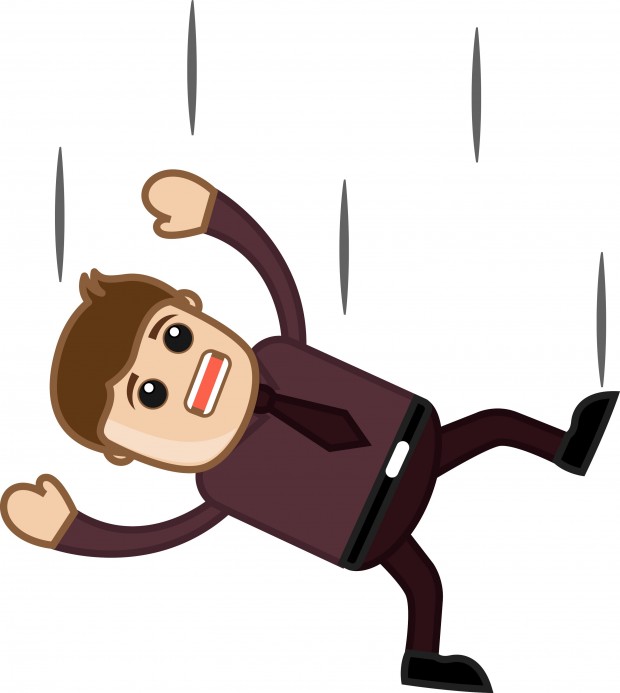I was watching a friend of mine with her kid the other day.
They were having a conversation. Sort of.
My friend was talking, but the kid was only sort of talking.
Half sounds, half words. It was clear the mom didn’t really understand the words themselves, but she just kind of rolled with it.
Now, I don’t remember being that young, but I doubt the kid was too worried about making any mistakes.
If you’ve ever seen kids running on the grass, and they trip over their feet, most of the time they think it’s pretty funny.
Once I had this mountain bike. I rode it quite often, on the street, and decided to get those special pedals with special shoes so they can clip in.
First ride was going fine until I forgot I’d switched my pedals. It seems that getting out of them requires some practice.
I rode up to the top of this hill, during heavy traffic, to a big intersection. The light was red, and I coasted to a stop.
Only as I started to fall over did I realize my feet were stuck in the pedals.
And right next to me, was a car filled with cute girls.
Boy oh boy was that embarrassing!
On the other hand, it was valuable feedback. I spent the next ten minutes or so practicing how to get in and out of those pedals, in a parking lot without many cars.
I could have just as easily gone home and never ridden again.
This is the difference between how we “label” events that happen to us.
They can be valuable feedback, which can help us. (I ended up riding about 200 miles a week for a year or so after that.)
Or we can give up, thinking that “event” MEANS “failure.”
But nothing really means anything.
Sure, we have some instinctive, “go-to” meanings.
But if we depended on our instincts ALL THE TIME, we’d weigh a million pounds and we’d start bashing people in the head with rocks whenever we got into an argument.
How we label events plays a large part in how “scary” the events are, either as they happen, or as we imagine them BEFORE they happen.
If we imagine them the wrong way, we’ll IMAGINE something we call “fear” and that will keep us stuck.
But with some practice, you can learn how to imagine future events differently. So they’ll seem less scary.
You’ll be more likely to take action, which means you’ll get more good stuff.
Get Started:

